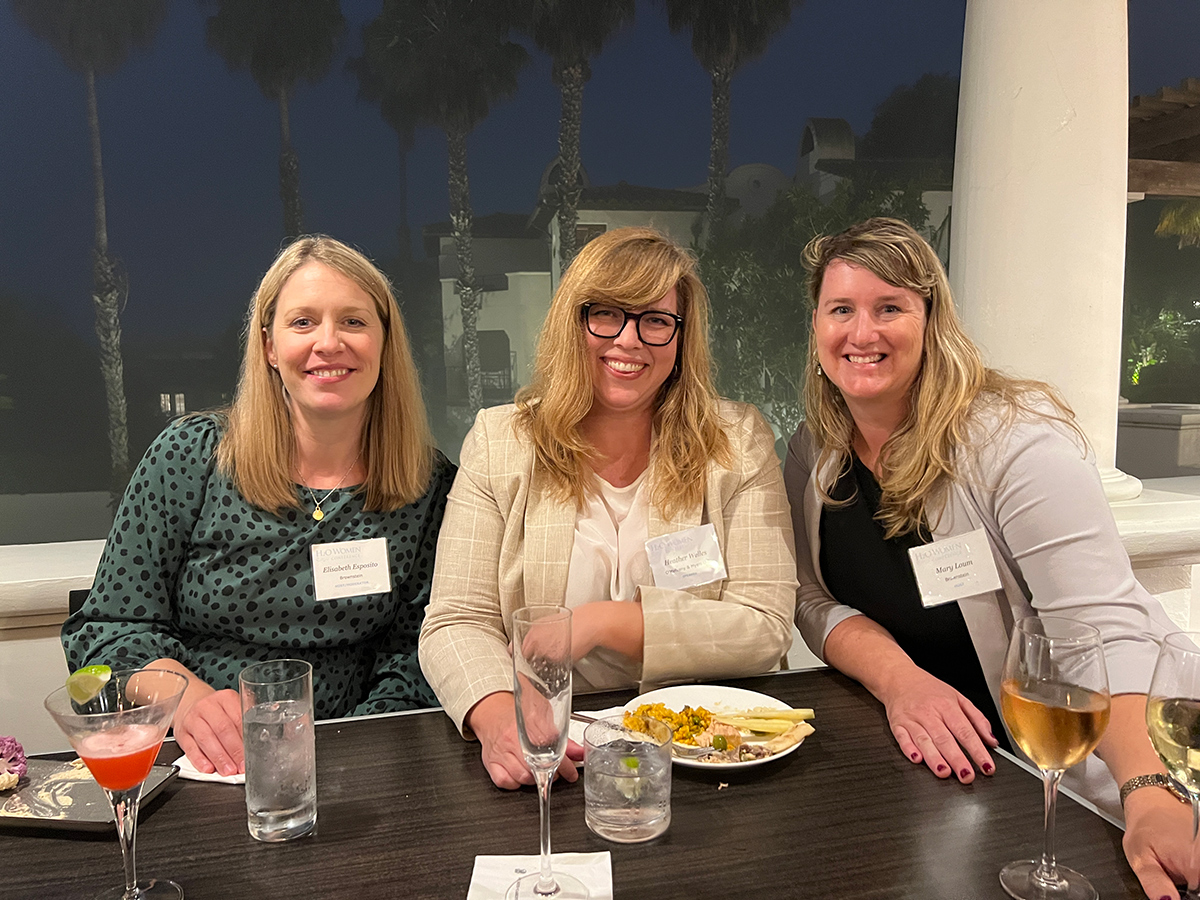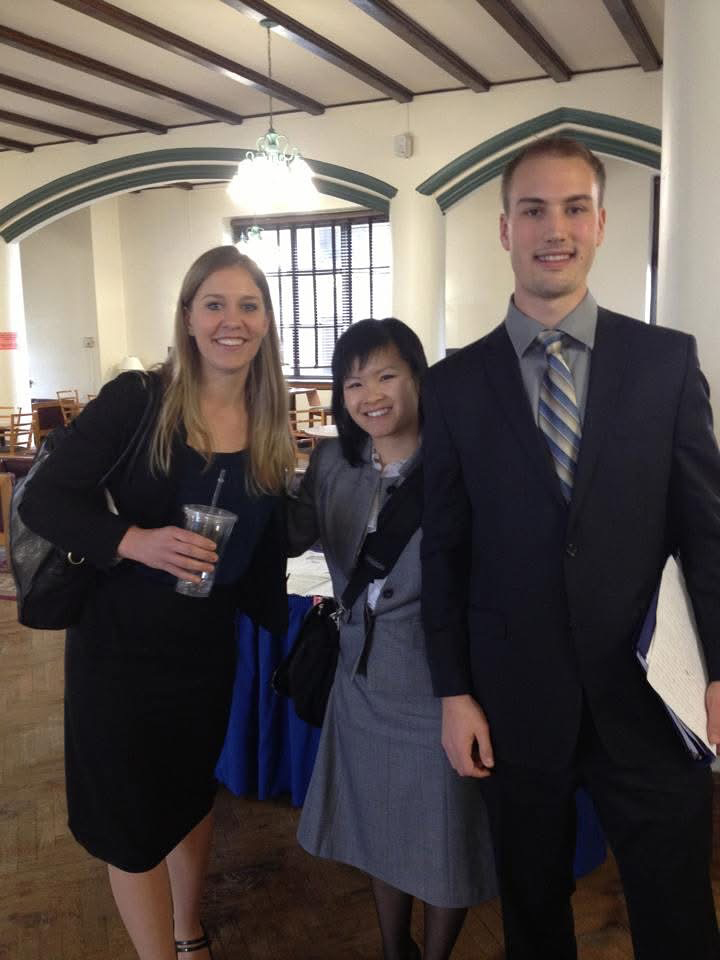
By Keemia Zhang
It doesn’t take long for recent UC Berkeley Law grads to climb the ranks and make a meaningful impact early in their wide-ranging careers. We periodically highlight standout alums who are shining across various practice areas in profiles that amplify what drew them to their current work, what they enjoy most about it, and their path to success.
Liz Esposito ’14 is a shining example of the standout students who come to Berkeley eager to take part in its top-ranked environmental law program.
Esposito served as co-president of the school’s Environmental Law Society, publishing editor and programs director at the journal Ecology Law Quarterly (ELQ), and co-chaired a symposium on California water law. She also won ELQ’s Energy and Climate Change Legal Writing Award, and reached the semifinals of the National Environmental Law Moot Court Competition.
Now a shareholder at Brownstein Hyatt Farber Schreck in Sacramento and co-chair of the American Bar Association (ABA) Section of Environment, Energy, and Resources, Forest Resources Committee, Esposito has worked successfully across the public and private sectors on complex natural resources projects.
“If you choose a career in environmental law, you will never be bored,” she says. “There will never be a shortage of work, no matter how you see yourself fitting into the profession.”
Her tenure at UC Berkeley began as an undergraduate in 2004. Esposito first majored in Society & Environment, then added a second major in Forestry & Natural Resources after spending a summer at the university’s forestry camp in Meadow Valley. A class in biodiversity law open to undergraduates, taught by UC Berkeley Law Professor and alum Holly Doremus ’91, sparked her interest in the legal field.
“That class was a really cool opportunity to be able to think about both legal issues and biodiversity, bridging the gap between science and environmental policy,” Esposito says.
Into the woods
After graduating in 2009, she went into public service as a National Environmental Policy Act (NEPA) planner for the U.S. Forest Service. She worked on environmental analysis and public outreach for what she calls “high-controversy” projects that underwent litigation — causing her to interact closely with attorneys.

“I came to understand that there can be this whole legal afterlife of a project that weighs into whether or not it gets implemented, affecting what actually gets done on the ground,” Esposito says. “The legal piece of the puzzle was of interest and a big part of why I went into law.”
Esposito subsequently enrolled at UC Berkeley Law in 2011, earning a Certificate of Specialization in Environmental Law and relishing abundant offerings from the school’s Center for Law, Energy & the Environment (CLEE).
“I really appreciated CLEE’s programming because I came into law school knowing I wanted to be an environmental lawyer,” she says. “I went to Berkeley because of the strength of the environmental law program, and I took advantage of what it offered, like lunch events and presentations offered by CLEE.”
In addition to her work with ELQ and the Environmental Law Society, Esposito says she took “all of the environmental classes I could fit in my schedule.”
After working the summer after her 2L year at Brownstein, Esposito spent the first 2½ years of her legal career with the firm as a junior natural resources attorney. In 2017, she took a job as a natural resources attorney in the U.S. Department of Agriculture’s (USDA) Office of the General Counsel, advising the Forest Service.
“I jumped on that opportunity because it was coming full circle; I would be able to work with folks in the Forest Service with jobs similar to the one I held when working for the agency,” Esposito explains.
While at USDA, she took on projects and litigation matters involving NEPA and other state and federal environmental laws, including the National Forest Management Act and the Clean Water Act.
The right fit
Esposito returned to Brownstein in 2019 and continues to advise clients as a natural resources lawyer. “I knew I would be able to work with great people on interesting and meaningful projects,” she says.
Calling environmental law a “fantastic field”, Esposito praises it as an interdisciplinary opportunity to solve complex problems involving multiple levels of government.

“The interdisciplinary approach is one of the things I appreciate most about what CLEE does,” she says. “As a practitioner, I find CLEE’s content very helpful, including reports that take deep dives into particular issues. It’s valuable to understand what really smart people are thinking about on environmental topics.”
Esposito says she relishes working with both public and private clients who understand the nuance of environmental challenges and “want to do the right thing.”
The level of that work has been rewarded. Esposito was named to the ABA Young Lawyers Division “On the Rise – Top 40 Young Lawyers” list last year, and also to Best Lawyers’ Ones to Watch in America list for 2024-25.
“I’ve really enjoyed getting to work on complicated problems that don’t have an easy answer,” she says. “It’s a field that takes lots of really smart people doing a lot of good work, and learning from each other to get to an answer that’s maybe not going to be perfect, but that’s going to hopefully make the world a better place.”
Beyond her impressive professional achievements, Esposito is a dedicated supporter of UC Berkeley who believes in giving back to the programs that shaped her career. She has generously contributed philanthropically, focusing on supporting the fields she studied.
As this year’s president of the California Alumni Foresters, UC Berkeley’s forestry alumni organization, Esposito supports students attending the same forestry camp that was so influential in her own academic journey. She also partnered with colleagues at her firm to secure firm sponsorship of the annual ELQ banquet, demonstrating her commitment to supporting the next generations of environmental law leadership.
This article was made possible by support from the Erin Ziegler Fund, an endowment for the Center for Law, Energy & the Environment within UC Berkeley Law.